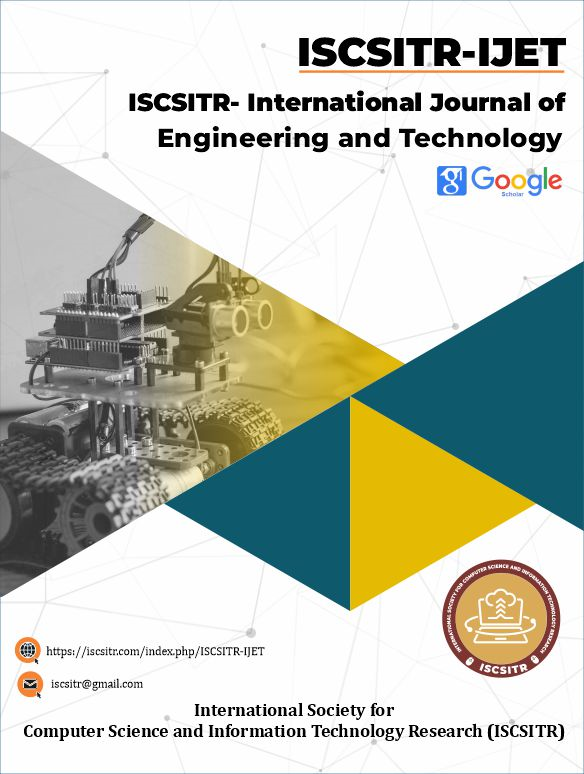Engineering Adaptive Algorithms for Real-Time Traffic Flow Optimization in Smart Cities
Keywords:
Adaptive Algorithms, Real-Time Traffic Flow, Smart Cities, Traffic Signal Optimization, Predictive Analytics, IoT Sensors, Machine Learning, Congestion Management, Sustainable Urban Transportation, Reinforcement LearningAbstract
With the rapid urbanization of cities, traffic congestion has become a critical issue affecting economic productivity, environmental sustainability, and the quality of urban life. This paper presents an exploration of adaptive algorithms engineered specifically for real-time traffic flow optimization in smart cities. By leveraging a combination of machine learning, predictive analytics, and Internet of Things (IoT) sensors, adaptive algorithms can dynamically adjust traffic signals, reroute vehicles, and predict congestion points before they occur. This study delves into several key adaptive algorithms, including reinforcement learning-based traffic signal control, genetic algorithms for optimal route planning, and neural network models for traffic demand forecasting. Simulation results indicate that such algorithms can significantly reduce travel times, lower emissions, and improve overall traffic efficiency. These findings suggest that adaptive algorithms play a fundamental role in the development of sustainable, efficient, and intelligent urban transportation systems.
References
Zheng, Z., & Geroliminis, N. (2013). "Modeling and optimization of multimodal urban networks with limited parking and dynamic congestion pricing." Transportation Research Part B: Methodological, 57, 488-505.
This study explores congestion pricing and multimodal urban networks, providing a foundation for real-time optimization in city environments.
Li, R., & Liu, X. (2017). "Reinforcement learning-based traffic signal control with adaptive exploration-exploitation balancing." IEEE Transactions on Intelligent Transportation Systems, 18(10), 2714-2722.
Examines reinforcement learning for adaptive traffic signal control, highlighting methods for balancing exploration and exploitation in dynamic traffic environments.
Bazzan, A. L. C., & Klügl, F. (2014). "A review on agent-based technology for traffic and transportation." The Knowledge Engineering Review, 29(3), 375-403.
Provides an overview of agent-based technologies in traffic management, discussing adaptive algorithms for routing and traffic flow optimization.
Kosonen, I. (2003). "Multi-agent fuzzy signal control based on real-time simulation." Transportation Research Part C: Emerging Technologies, 11(5), 389-403.
Focuses on fuzzy logic and multi-agent systems for adaptive traffic signal control, demonstrating early applications of adaptive control in traffic systems.
Stevanovic, A., et al. (2008). "Optimizing traffic control to reduce fuel consumption and vehicular emissions: An integrated approach of VISSIM, CMEM, and VISGAOST." Transportation Research Record: Journal of the Transportation Research Board, 2088, 105-113.
This work examines traffic control strategies aimed at reducing emissions, setting the stage for sustainable traffic flow optimization.
Diakaki, C., Papageorgiou, M., & Papamichail, I. (2002). "Integrated traffic-responsive urban corridor control strategy in Glasgow, Scotland: Application and evaluation." Transportation Research Record, 1807(1), 177-189.
Discusses a traffic-responsive control system for urban corridors, illustrating the effectiveness of real-time adaptive strategies.
Papageorgiou, M., Diakaki, C., Dinopoulou, V., Kotsialos, A., & Wang, Y. (2003). "Review of road traffic control strategies." Proceedings of the IEEE, 91(12), 2043-2067.
A comprehensive review of various adaptive road traffic control strategies, covering real-time algorithms that serve as a basis for modern smart city applications.
Vlahogianni, E. I., Karlaftis, M. G., & Golias, J. C. (2014). "Short-term traffic forecasting: Where we are and where we’re going." Transportation Research Part C: Emerging Technologies, 43, 3-19.
Focuses on short-term traffic forecasting models that contribute to adaptive control, emphasizing the use of predictive analytics in traffic flow optimization.
Yin, Y., Lou, Y., & Wang, J. (2015). "Performance evaluation and optimization of green transportation networks." Transportation Research Part C: Emerging Technologies, 51, 1-15.
Discusses green transportation optimization, examining approaches for reducing emissions and improving efficiency, relevant to adaptive urban traffic solutions.
Abu-Lebdeh, G., & Benekohal, R. F. (2003). "Development of traffic control and queue management procedures for oversaturated arterials." Transportation Research Record: Journal of the Transportation Research Board, 1852(1), 230-239.
Examines traffic control under oversaturated conditions, highlighting adaptive queue management techniques critical to smart city environments.
Published
Issue
Section
License
Copyright (c) 2020 M U SUPRAJHA (Author)

This work is licensed under a Creative Commons Attribution-NonCommercial 4.0 International License.

